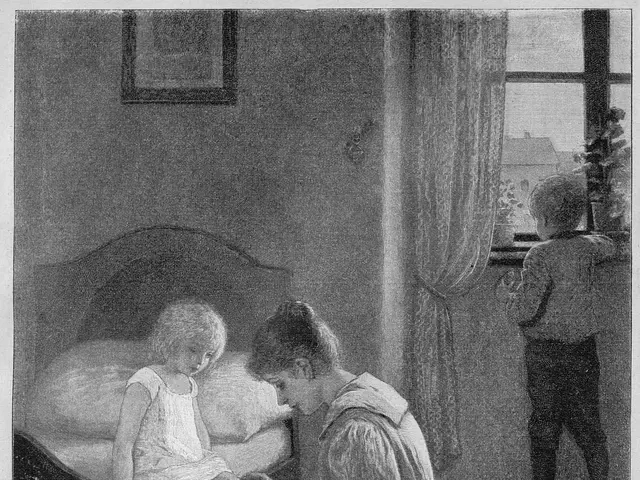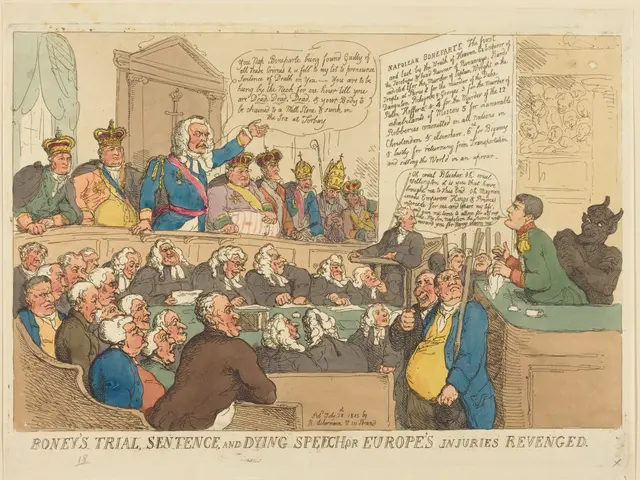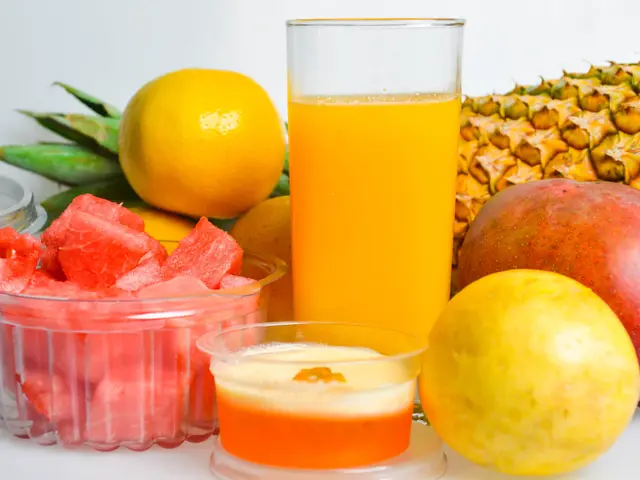The cause behind increased urination after alcohol consumption is explained here.
Alcohol, a common component in many social gatherings, has a significant impact on our bodies, particularly when it comes to urination. Here's a breakdown of how alcohol affects urine production and why staying hydrated is crucial.
Firstly, it's essential to understand that once alcohol enters the bloodstream, there's no way to make a person less drunk. Instead, they must wait for the alcohol to pass through their digestive system.
Alcohol acts as a diuretic, increasing urine production. This diuretic effect is primarily influenced by the inhibition of antidiuretic hormone (ADH), or vasopressin, release from the pituitary gland. This hormone normally signals the kidneys to conserve water, but when alcohol suppresses ADH, the kidneys produce more urine, leading to increased urination and fluid loss.
The diuretic effect occurs mainly during the rising blood alcohol concentration phase, causing excretion of free water while preserving electrolytes. This effect contributes to dehydration due to greater urine output. The duration of this effect typically lasts as long as blood alcohol levels are elevated and ADH suppression continues, which usually corresponds to the time it takes for blood alcohol concentration to peak and begin to decline—about 30 to 90 minutes after drinking starts, but can extend longer depending on consumption and individual metabolism.
However, drinking alcoholic drinks with lower alcohol content can help reduce frequent urination. Moreover, hydration levels before consuming alcohol can also impact urine output; those who are slightly less hydrated urinate less.
In summary, factors influencing the diuretic effect include inhibition of ADH release, rising blood alcohol concentration levels, and individual metabolism rate of alcohol. The typical duration begins with rising blood alcohol levels, lasts while blood alcohol concentration remains elevated, and generally peaks within 30-90 minutes but effects can last for several hours depending on the amount consumed.
It's important to note that excessive alcohol consumption can lead to urinating at night and potentially bedwetting, especially in adults with incontinence issues. Liquors and wine have higher amounts of alcohol than drinks such as beer and may have a stronger diuretic effect.
To combat dehydration caused by alcohol, it's advisable to drink at least one glass of water for each serving of alcohol. Additionally, drinking hydrating beverages such as herbal teas, milk, coconut water, and eating fruits and vegetables with a high water content can help a person stay hydrated.
Regular consumption of alcohol can reduce its diuretic effect on the body, but the National Kidney Foundation states that regular consumption of alcohol can double the risk of kidney disease or kidney damage, even without excessive drinking. The first signs of kidney damage include swelling of the feet and legs due to fluid retention, numbness or tingling in the fingers or toes, loss of appetite, and a metallic taste in the mouth.
In conclusion, while alcohol can lead to increased urination, understanding its effects and taking steps to stay hydrated can help mitigate its negative impacts. Remember, moderation is key.
Read also:
- Impact of Alcohol Consumption During Pregnancy: Consequences and Further Details
- West Nile Virus found in Kentucky for the first time; residents advised to take protective measures
- Symptoms, Timeframe, and Recovery from Cocaine Detoxification
- Growth of Aloe Vera Extract Market Projected at 7.9% Annual Rate Until 2034







